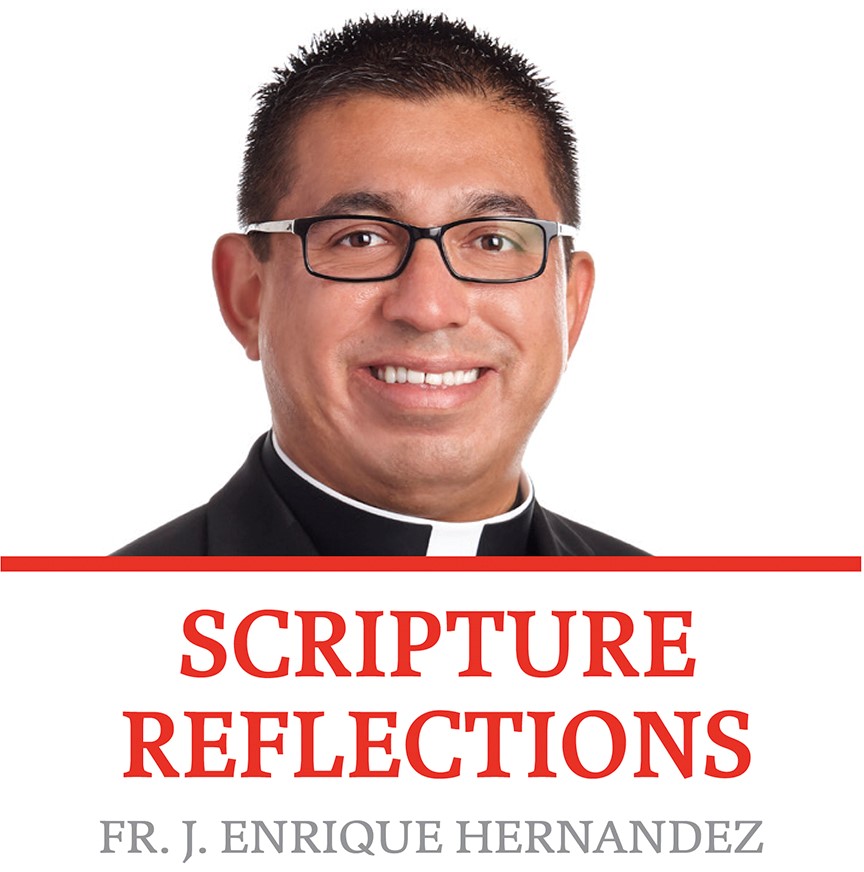Scripture Readings, Sunday, March 10, 2024
One of the most beautiful traditions that we do as Catholics during Lent is to pray the Stations of the Cross. We reflect on the whole journey of the Passion and Death of our Lord. Some versions of the Stations of the Cross help us reflect not only on the suffering of Christ, but also the suffering of our brothers and sisters, including our suffering connected to Jesus’ cross. In our difficult lives, the darkness seems so real and overwhelming. On this Fourth Sunday of Lent, the first reading, telling the story of old Israel (a story of unfaithfulness, stubborn selfishness, destruction and exile) reminds us how often human history has been filled with darkness, right down to our day. In the second reading from the letter to the Ephesians, St. Paul confidently confronts this darkness: for him, reliance upon false and selfish securities is to embrace death.
If we are inclined to feel demoralized at this point in our Lenten journey, we are invited by these readings to find again the source of new energy and encouragement. Amid the deepest darkness, the true Light shines. Old Israel finds that their foolishness and selfishness will not frustrate God’s designs. The Lord inspired Cyrus, the king of Persia, to send the remnant of Israel back to rebuild the temple. St. Paul announces to those who are in danger of losing their way the astounding truth at the center of our faith: God’s gift to a lost world is new life in Christ, our redeemed humanity is God’s “work of art.” We each have our part to play in the realization of God’s salvation.
But this great hope is only possible by the cross. In the Gospel, Jesus explains to us how salvation works. Just as Moses lifted up the serpent in the desert, so must the Son of Man be lifted up, so we can look to him and believe and have eternal life. This is a reference to Numbers 24:1-9, where God provided salvation from death for the people of Israel from venomous serpents by looking at an image of a bronze serpent that Moses put onto a pole. The serpents were the consequence of the rebellion and sin among God’s people, but they could find salvation from death through an act of faith by looking at the bronze serpent to live. Jesus is telling Nicodemus that this event foreshadows his own death, where he would be lifted up. We can look back and know that this is about Jesus’ crucifixion. The main idea, though, is that God provides a way of salvation that is completely dependent on faith, where one can look to Jesus and live. Jesus describes this as believing and having eternal life, which is not a static faith, or just affirming some truth about God, but a faith that is rooted in following and being united with Jesus. All this is possible because of God’s perfect love toward humanity. But it is especially the climax of these readings, the words spoken to Nicodemus, by Jesus, the Light of the World, that by our belief we are saved. These words are perhaps the most quoted of the Gospels. Let us not take them for granted but take them to heart and rejoice in the new life they bring: “For God so loved the world that he gave his only Son, so that everyone who believes in him might not perish but might have eternal life.” A world weighed down by the darkness of sin and death must know, Jesus says, that he came from the Father, not “to condemn” but to bring reconciliation and life.
It is so important for us to understand what these verses teach about the heart of God. No one had to twist God’s arm or force him to love sinners in this broken world. Jesus did not persuade God to show us mercy or to send him for our salvation. John 3:16 tells us that God loved us and therefore sent his Son so we should not perish but have eternal life. God’s disposition toward his people did not change from anger to love when the Word became flesh, rather the Word became flesh because of God’s great love for us. His response to our helplessness and our sin was to make a way for us to be saved.
To believe in Jesus is to accept his gift of love that we did not deserve but so much need. To believe in the Son is to accept that we are not well and to recognize that he is our medicine and Divine Physician. Brothers and sisters, let us believe in the Son. Let us believe in his grace. Let us believe in his providence. Let us believe in his gift of salvation.

